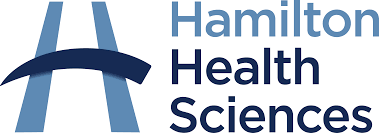Hamilton Health Sciences is committed to being fully accessible. That means we want our building and our services to be easy to use and understand. We will do our best to support you, whether you come to one of our hospitals or visit our website.
It is important that you can fully access our services without barriers. Please talk to someone on your healthcare team about your accessibility needs. Your experience matters to us.
Read our 2020-2025 Accessibility plan
If you require information in a different format, the staff at Hamilton Health Sciences can assist you in many ways, including:
- reading written information aloud
- formatting electronic documents to be accessible for use with a screen reader
- providing handwritten notes instead of spoken words
- providing a written summary of audio or visual information
- using plain language
- making documents available in large print
Please contact our Patient Experience team at 905-521-2100 ext. 75240 to let us know how we can meet your needs.
Visual Impairments
If you have difficulties seeing, please talk to someone on your healthcare team about your accessibility needs so they can work with you to provide the best care.
If you are coming for a clinic appointment, please call the clinic beforehand. Explain your accessibility needs so they can be prepared when you arrive.
For those that are visually impaired, some of our hospitals and centres have audible signals in the main elevators as well as Braille numbers on the control panels. Tactile numerals are also provided on the hall frames at each level.
Hearing Impairments
If you have difficulties hearing, please talk to someone on your healthcare team about your accessibility needs so they can work with you to provide the best care.
If you are coming for a clinic appointment, please call the clinic beforehand. Explain your accessibility needs so they can be prepared when you arrive.
Sign Language Interpretation Services
If you require sign language interpretation at one of our hospitals or centres, please talk to someone on your healthcare team. They will work with you to arrange for a qualified interpreter from the community. If you know you are coming to hospital ahead of time, please inform your healthcare team of your need for an interpreter to that they can make arrangements in time for your visit.
You and your family are also welcome to organize your own interpretation services.
Wheelchairs & Mobility Assistance
Wheelchairs are available at all of our hospitals. They are located at front entrances.
Service Animals
We welcome service animals at all of our hospitals.
Service animals are granted access into all areas of the hospital except those areas that require special precautions, such as the operating room.
Service animals are identified by a harness / vest or a letter confirming that you require the animal for reasons relating to your disability. This letter must be written by a Regulated Health Professional who can speak to your needs. You are responsible for your animal’s care and behavior at all times.
Support Persons
You are welcome to bring a support person with you to the hospital. A support person is an individual hired or chosen to accompany you to help with communication, mobility, personal care, medical needs or access to services as it relates to your disability.
For safety and security, support persons may not be able to accompany you in some parts of the hospital or for certain procedures (e.g X-ray). Please talk to someone on your healthcare team if you have questions or concerns.
Accessible Parking
Accessible parking is available at each of our hospitals and centres. For information about accessible parking locations at our hospitals and centres, choose a location from the list below.
Accessible Washrooms
There are accessible washrooms at every Hamilton Health Sciences hospital. Typically, accessible washrooms are located on the main level near the lobby.
Assistive Devices
Please bring any assistive device that you require to the hospital. Talk to someone on your healthcare team if you need help to use them.
Examples of assistive devices:
- Walkers
- Wheelchairs
- Communication aids
- Glasses
- Hearing aids
Aphasia and Speech Impairments
Please let us know if you have a disability related to talking or understanding. If you can, tell us what works best for you. If you have a communication book, please bring it with you.
Your healthcare team will also work with you to find the best communication strategies.
Here are some examples:
- Use plain language.
- Speak clearly and reduce your rate of speech.
- Allow extra time to understand and respond to your questions.
- In addition to speech, you could consider using writing, drawings, gestures, facial expressions, photos, calendars, maps, and other visual supports.
- Confirm that you are being understood with “yes” and “no” questions.
- Clarify and rephrase when necessary, especially with numbers.
- Have pen and paper available.
Language Interpretation Services
Please tell your clinic if you need a language interpreter to help communicate with your health care team before your appointment. Due to COVID-19, interpretation services are currently available at HHS by phone.
